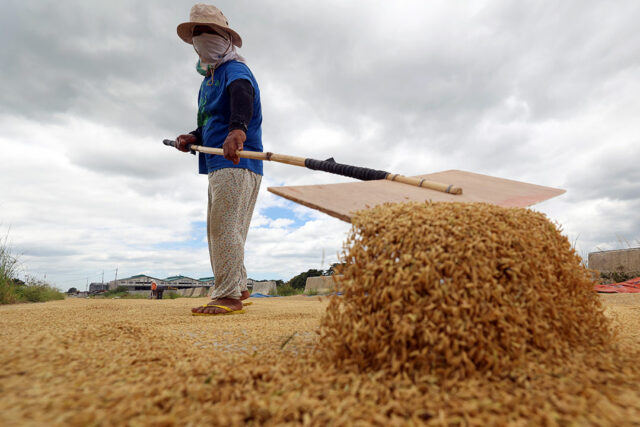By Beatriz Marie D. Cruz, Reporter
MAPÚA MALAYAN Digital College (MMDC) said it is expanding its micro-credential programs with courses in English proficiency and artificial intelligence (AI) to help Filipino workers address skills gaps in the technology-driven labor market.
The upcoming courses will focus on training and exam preparation for the International English Language Testing System (IELTS), certification for English as a Second Language (ESL) instructors, and an introduction to AI, MMDC Chief Learning Officer and Ayala Education Co-founder Derrick Latreille said in an interview with BusinessWorld.
“As technology disrupts the labor market faster and faster, people need quicker, more nimble ways to skill themselves up and move into better-paying jobs and better careers,” Mr. Latreille said.
“We’ve gotten overwhelming demand for ESL, so we’re going to offer a micro-credential certification to qualify someone as an ESL instructor,” he added.
MMDC will also offer micro-credential courses for those taking the IELTS, particularly individuals aiming to work, study, or migrate to English-speaking countries, he said.
Meanwhile, its AI certification course is intended to help learners transition from basic to advanced use of AI technologies.
“We’ve put together an AI micro-credential [course] from multiple providers that addresses the awareness gaps people have around which AI [tools] they need to know, and the skill gaps,” Mr. Latreille said.
By September, MMDC will also implement a more affordable pricing scheme in response to public demand, he said.
“We saw that people wanted lower, more broken-down prices. So, starting in September, all our courses will cost no more than P5,000 to get started,” Mr. Latreille said. “The modules that follow will usually be about P1,000 to P3,000.”
MMDC offers flexible, industry-recognized certification programs as workers navigate technological disruptions in the post-pandemic workplace. It operates under Mapúa Malayan Colleges Laguna, a sister school of Mapúa University.
Mapúa is the flagship university of listed company iPeople, Inc., a joint venture between the Yuchengco-led House of Investments and Ayala Corp.
The MMDC Certification Programs currently offer five courses: Virtual Assistance, Meta Social Media Marketing, Google Digital Marketing and E-Commerce, Adobe Content Creation, and IBM Data Analytics.
“We just launched in April, so what we’re working on and ironing out is what the experience has been [for our enrollees, and] what support they need,” Mr. Latreille said.
“By October, November, and December, we’re going to be taking off at high speed. I would expect there will be about a thousand people enrolling in that timeframe.”
MMDC’s certification programs are fully online, catering to the needs of both full-time and working students. They are accessed through Coursera, a global online learning platform, providing self-paced learning modules, AI learning tools, and student monitoring.
Upon completing a course, MMDC can provide additional support such as building graduates’ curriculum vitae, preparing them for interviews, and connecting them with prospective employers.
To enroll in a certification program, an applicant must be at least a high school graduate, whether pre-K-12 or K-12. Enrollment is open from the 1st to the 20th of each month, while classes begin on the 1st of the succeeding month.
Most of MMDC’s students already have work experience and are aiming for promotions, while others enroll to increase their chances of being hired, Mr. Latreille said.
“One of the things that surprised us is we thought most of the people signing up would be looking for new jobs, but that’s actually the minority. A lot of them are looking to upgrade their skills for a future promotion,” he added.
About 68% of Filipinos need training to meet evolving skill demands, with two-thirds of Philippine employers identifying skills gaps as a barrier in the labor market over the next five years, the World Economic Forum (WEF) said in its 2025 Future of Jobs Report.
By 2030, the most in-demand skills among employers globally will include AI and big data, networks and cybersecurity, technological literacy, creative thinking, resilience, flexibility and agility, and curiosity and lifelong learning, WEF said.
“Some of my friends in the BPO (business process outsourcing) space recently told me that they’re finally seeing AI handle low-level phone calls. So, people in the BPO space need to start looking at other options, like, ‘How can I skill up to move into other spaces?’” Mr. Latreille said.
The gig economy also serves as a key market for MMDC, he noted, as many types of gig work opportunities focus on an individual’s micro-credentials and value-added skills.
“First, it was the OFWs (overseas Filipino workers), then it was the BPOs, and now, I think gig work is the third wave of labor in the Philippines,” he said. “Preparing people for lots of gig work will be a big opportunity for micro-credentials to enable them to participate in it.”
As the Philippine job market evolves, MMDC expects greater demand for micro-credential programs as workers and employers alike seek to address the country’s digital skills gap.
“There will be a lot of people looking for better jobs, and they don’t have the time and money to make college work,” Mr. Latreille said. “At the same time, you might have a college degree but you see the labor market shrinking for that degree because of things like AI.”
For Mr. Latreille, what sets MMDC’s certification courses apart is the involvement of tech leaders such as Google and Meta.
“We’re letting the labor market lead us in what we offer, because we see ourselves as facilitators here rather than the teachers.”





![BTr-Treasury-720p-3-1024x576[BW FILE PHOTO]](https://www.bworldonline.com/wp-content/uploads/2024/04/BTr-Treasury-720p-3-1024x576BW-FILE-PHOTO-640x360.jpeg)



















